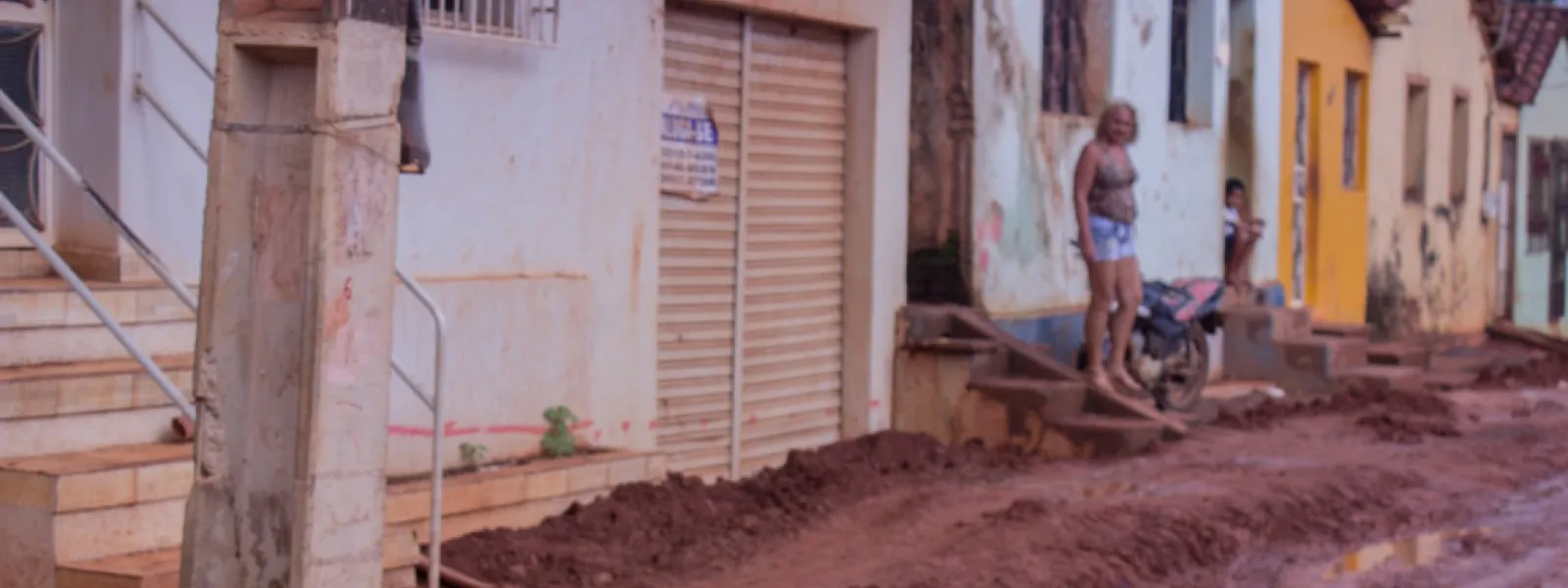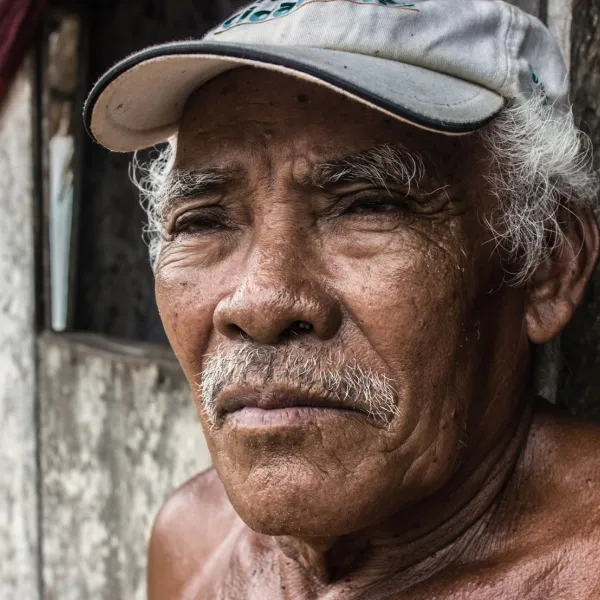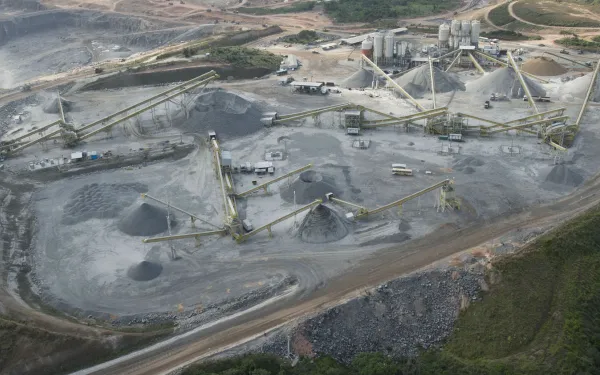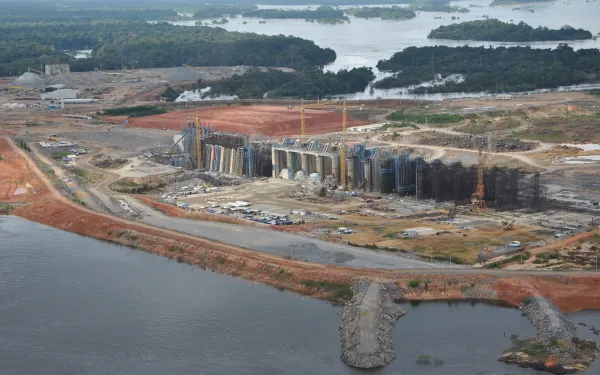
Project
Photo: Maíra Irigaray / Amazon WatchHolding Brazil accountable for the Belo Monte Dam
When fully operational, Belo Monte will be the third-largest dam in the world, constructed in one of the most important ecosystems on the planet: the Amazon rainforest. It sits on the Xingu River in Pará, a state in northern Brazil. The reservoir will cover 500 square kilometers of forest and farmland—an area the size of Chicago.
For the people of the Xingu, construction of Belo Monte has meant loss of access to water, food, housing, work and transportation. At least 20,000 people have been displaced.
The government and construction consortium began to construct the dam without first consulting the people of the region, many of whom are indigenous. They flouted international human rights law, which requires the free, prior and informed consent of affected indigenous communities. Brazil also failed to comply with precautionary measures issued by the Inter-American Human Rights Commission, which were intended to protect the life, health, and integrity of local communities.
Though Belo Monte began operations in May 2016, it is not yet operating at full capacity. In April 2016, a federal court suspended the dam's operating license because the consortium in charge did not complete basic sanitation works in Altamira, the city nearest to and most affected by the dam.
Partners:

Related projects
Latest News

Brazilian Court overturns suspension of Belo Monte’s operating license
Brasilia, Brazil. The Federal Regional Court of the First Region (TRF1) overturned the preliminary decision suspending the operating license of the Belo Monte Dam. On January 11, the Federal Justice of Altamira decided to suspend the license until the federal government and Norte Energia, the company in charge of the dam’s construction, complied with their obligation to restructure the National Indian Foundation (FUNAI) of Altamira. However, a federal judge from TRF1 decided today that this decision disproportionately “affects the public interest, causing grave repercussions on the economy and public order.” Another argument presented was that the suspension would prevent the implementation of various plans designed to benefit indigenous peoples. “This is yet another attack on the rights of the affected indigenous communities. The decision manipulates the arguments of public interest, order, security and the economy, and then uses the plans – which should have been implemented when the previous license was granted in 2010 – to justify why it is not possible to suspend the operating license. The bottom line is that the operating license never should have been granted in the first place without the fulfillment of those plans,” said María José Veramendi, AIDA attorney. For more information, please consult the factual record of the case and the latest news about our case before the IACHR.
Read more
IACHR opens case against Brazil for human rights violations related to Belo Monte Dam
Para português, clique aqui Four years after civil society organizations filed their original petition, the Commission opens the case, asking the Brazilian government to respond to allegations of human rights violations stemming from the hydroelectric project under construction in the Brazilian Amazon. Washington D.C., United States. As the first reservoirs of the Belo Monte Dam are being filled, the Brazilian government is coming under fire from international organizations. On December 21, the Inter-American Commission on Human Rights (IACHR) opened a case against Brazil, which was challenged by affected communities represented by the Interamerican Association for Environmental Defense (AIDA), Justiça Global and the Sociedade Paraense de Defesa de Direitos Humanos (SDDH). After an initial review lasting four years, and several requests for fast tracking the case by the petitioners, the Commission finally determined that the petition contains sufficient grounds to open the case, which means that Brazil must respond to the claims of human rights violations caused by Belo Monte. “We hope and believe that now is the time for Brazil to respond comprehensively to our claims about: the absence of consultation and free, prior and informed consent of affected indigenous communities; the lack of participation and adequate assessment of environmental impact; and the forced displacement and violations of the rights to life, health, integrity and justice of indigenous peoples, riverine communities, and residents of the city of Altamira,” said María José Veramendi Villa, AIDA attorney. Based on Brazil’s response, the Commission will then determine if requirements have been met to have the case admitted and, if so, to establish whether or not the project caused the alleged human rights violations. “The opening of the case is, above all, a victory for the affected communities and local social movements, who have endured for all these years, and remain strong and determined in their search for justice and reparation,” said Raphaela Lopes of Justiça Global. This past November, the Brazilian Institute of the Environment and Renewable Resources (IBAMA) authorized Belo Monte’s operating license, which allowed the dam’s reservoirs to be filled. IBAMA did so despite the fact that Norte Energía, the company in charge of the project, failed to comply with the conditions necessary (potable water and sanitation, among others) to guarantee the life, health and integrity of affected populations. By opening the case for processing, the Commission is using all available tools to monitor the situation surrounding Belo Monte. Indigenous communities affected by the dam have been protected by precautionary measures that the Commission authorized in 2011, which Brazil has yet to meet. In early December, the United Nations Working Group on Business and Human Rights visited Altamira, the city closest to the Belo Monte project and one of the areas most affected by displacement and socio-environmental conflicts caused by the dam’s construction. There, they met with affected groups, among them members of indigenous and riverine communities, listening to their complaints. After their visit, the Working Group issued a statement that, among other things, urged the Brazilian government to respect human rights, not sacrifice them for economic development. The Working Group is expected to present the final report of their visit to the Human Rights Council in June 2016. It is our hope that they conduct an adequate follow-up to their visit, and that the report they produce is explicit regarding both the human rights violations surrounding Belo Monte, and the actions of the Brazilian government and the companies involved. As organizations representing the victims of Belo Monte, we will continue to press Brazil to respond to the human rights violations directly caused by the dam’s construction.
Read more
Belo Monte noncompliant with conditions for operation, says environmental authority
Altamira, Brazil. In their technical analysis of the Belo Monte Dam released yesterday, the Brazilian Institute of Environment and Renewable Natural Resources (IBAMA) concluded that the conditions required to approve Belo Monte’s Operating License have not yet been met. Ten of twelve conditions identified by IBAMA as pending compliance are considered essential for granting the license. Until the operating consortium, Norte Energía, addresses these conditions, the project will be delayed and the dam’s reservoir will not be flooded. “We welcome IBAMA’s thorough evaluation of Belo Monte, a project that has already had severe impacts on the environment and human rights,” said Astrid Puentes Riaño, co-director of AIDA. “Moving forward, it is crucial that all conditions are met, and measures to protect the people and environment of the Xingú River basin are fully implemented before the license may be granted.” The Interamerican Association for Environmental Defense (AIDA) has for more than 5 years supported indigenous and local communities and organizations in their fight to denounce the irregularities of the Belo Monte project. The conclusions outlined by IBAMA reinforce the arguments of those who have long opposed the dam for its negative socio-environmental impacts. “If the Brazilian government approves Belo Monte’s operating license without first guaranteeing the protection of the environment and human rights, they would be violating their international commitments,” said María José Veramendi Villa, AIDA attorney. AIDA and partner organizations have long argued that conditions do not exist for the approval of licenses for Belo Monte. Essential services that would guarantee minimum rights to the displaced population remain outstanding, including potable water and health and sanitation services. In 2011, the Inter-American Commission for Human Rights granted precautionary measures in favor of affected indigenous communities. The severity of the project’s human rights violations have been reinforced in a report by the Socio-Environmental Institute (ISA) of Brazil, to which AIDA contributed, as well as in information gathered by the health and indigenous protection authorities and the Brazilian Public Ministry. AIDA expects that IBAMA’s technical report will be taken into consideration when making the final decision on the dam’s operating license. The outright denial of the license would serve as a paradigm for future mega-projects planned in the Brazilian Amazon, as well as other parts of the region, sending a clear message that economic development projects must not engage in human rights violations.
Read more